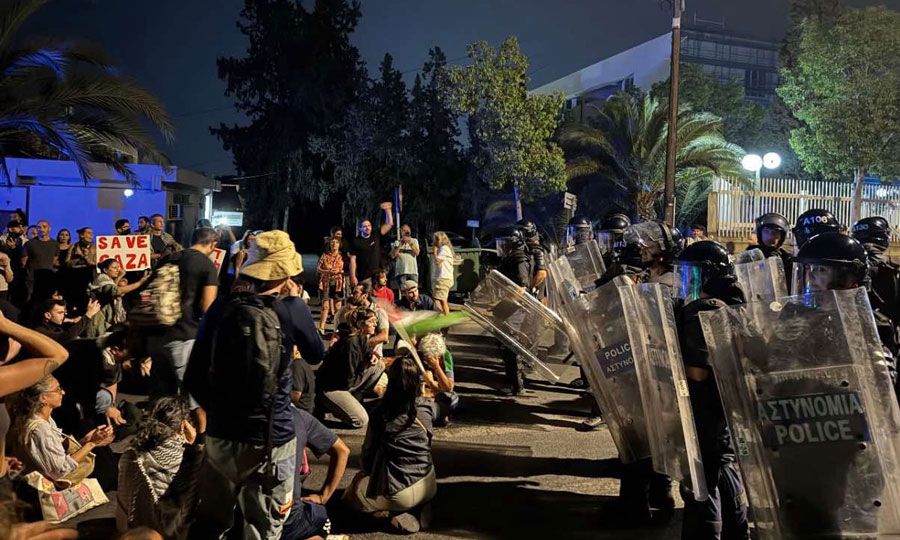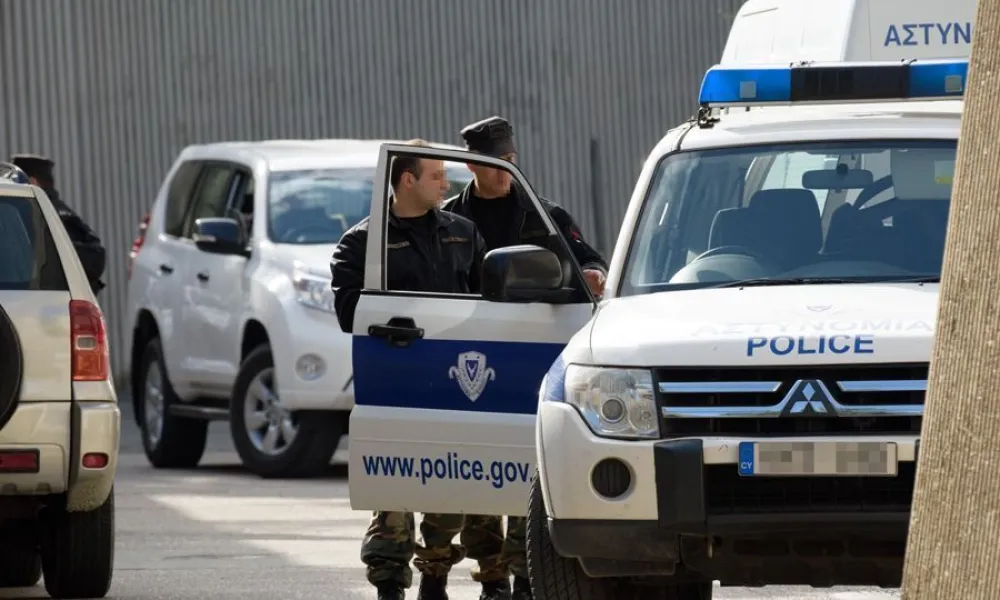Justice minister Marios Hartsiotis indicated that a relevant police statement was abundantly clear about what happened last week during a protest on Gaza that turned violent outside the Foreign Ministry, as participants said officers acted with excessive force.
Following a meeting of the parliamentary Legal Affairs Committee, Hartsiotis noted that the situational report, supported by videos and eye-witness accounts is "exact and detailed", clearly stating, "as we can all see," he added, 150-200 people sitting in the middle of a central avenue outside the Presidential Palace.
Hartsiotis further noted the "revelation that high-ranking AKEL members took part in the protest, including the party’s press spokesperson Yiorgos Koukoumas, as he himself admitted".

"Everyone is entitled to their view," Hartsiotis said, but it was "common sense" that people who were blocking a central artery, without previously liaising with the police on their protest, became "an inherent risk to themselves, as well as being in the way of ambulances possibly passing through on an urgent case".
"People should understand that this was not just a matter of police suggesting where people should be standing, as a relevant legislation envisaged, it was a matter of intention and common sense that people should have been protesting on the pavement and not the road," argued the minister.
Commenting on allegations of excessive force, the Minister urged every citizen to launch a complaint to the competent authorities, on any charge, including violence or any other alleged violation by an officer. He further stressed that there were attempts to approach protest organisers, but these did not materialise.
In response to criticism of relevant protest legislation as "terrorising citizens", Hartsiotis said that the law is meant to establish the best possible order during a peaceful protest, otherwise there will be a return to the previous situation, whereby the chief of police held the exclusive right of deciding whether a protest should go ahead or not.
"There’s no reason for people who want to protest peacefully, not to state the fact in order to establish safety and not endanger lives or risk damaging properties," he added.
Hartsiotis also made the point that in countries like Greece, Belgium or the UK, protesters are obliged to state their intention to protest, so the rules there are stricter. "This is about human rights, protecting life and properties," he concluded.
